
The software testing landscape in 2025 is more complex than ever.
Apps today run on multiple devices, integrate AI-driven features, handle real-time data, and need to meet strict compliance rules. One broken flow can cause churn, security breaches, or even regulatory issues.
The right testing tool isn’t just a nice-to-have — it’s what ensures users trust your product.
In this guide, we’ll cover the best software testing tools of 2025, why they stand out, and how to choose the right one for your app.
Multi-Device Journeys → Apps now run across mobile, tablets, web, wearables, and even smart TVs.
AI-Integrated Apps → Testing isn’t just about UI anymore; we’re validating decision engines and recommendation systems.
Data Privacy & Compliance → With GDPR, HIPAA, and SOC2, testing now includes security and data handling verification.
Fast Release Cycles → With CI/CD pipelines, you can’t afford slow manual testing anymore.
Bottom line → Testing isn’t optional. The right tool saves time, cost, and reputation.
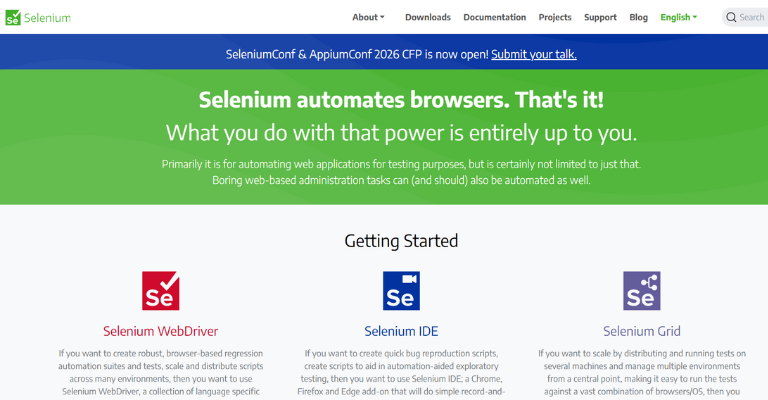
Still the go-to framework for automating web testing across browsers and devices.
Perfect for QA teams that want flexibility.
Integrates easily with CI/CD tools like Jenkins.
Large, active community for support.
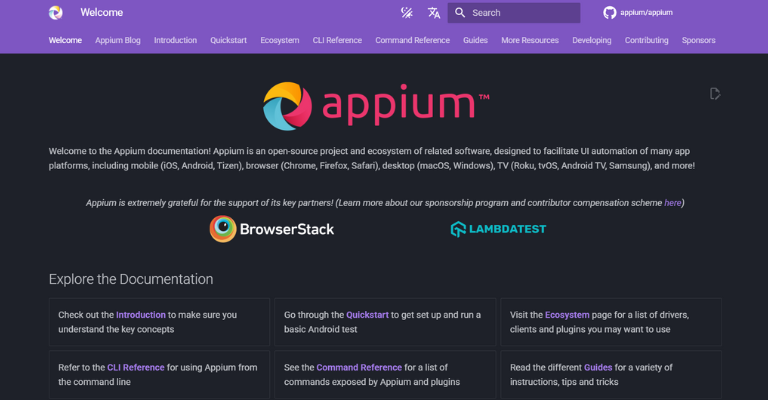
If your app runs on iOS or Android, Appium is a leader for native, hybrid, and mobile web apps.
Completely open-source.
Works with any language (Java, Python, JavaScript).
Supports parallel testing on real devices and emulators.
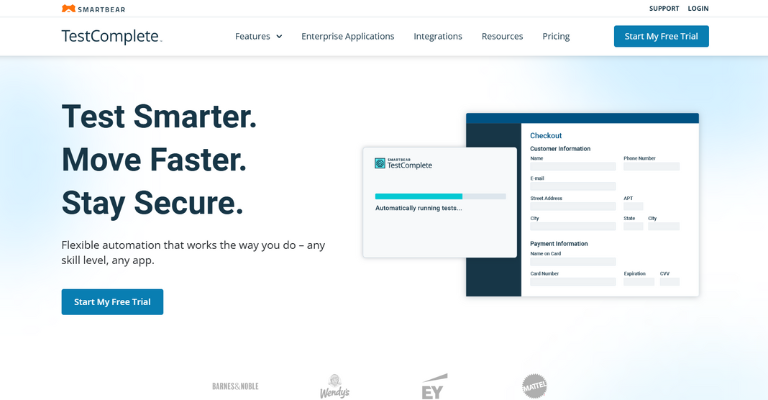
Great for teams that want automation without heavy coding.
Drag-and-drop test creation
Smart object recognition powered by AI
Supports web, desktop, and mobile
Best For → Enterprises running large-scale testing without hiring a dedicated automation engineer.
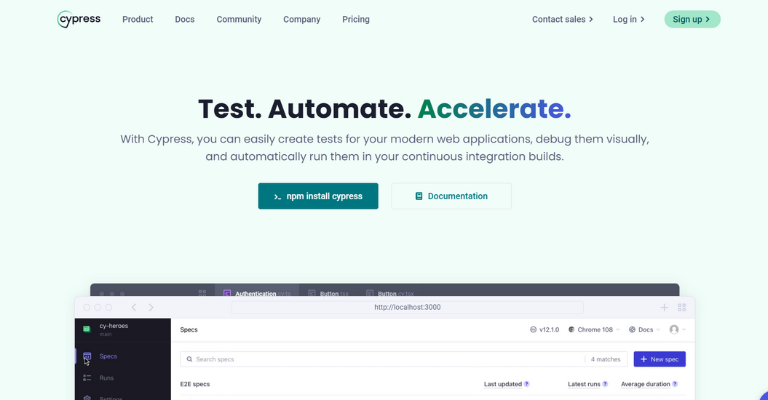
Loved by frontend developers for end-to-end web testing.
Real-time reloads
Interactive debugging
Great for React, Angular, and Vue projects
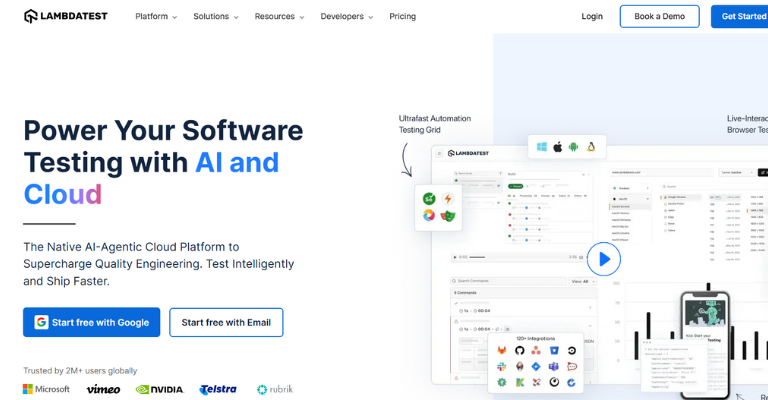
A cloud-based platform that lets you test your app across thousands of browsers, OS combinations, and real devices.
Perfect for mobile-heavy user bases
Run parallel tests to save time
Integrates well with Selenium, Cypress, and other automation tools
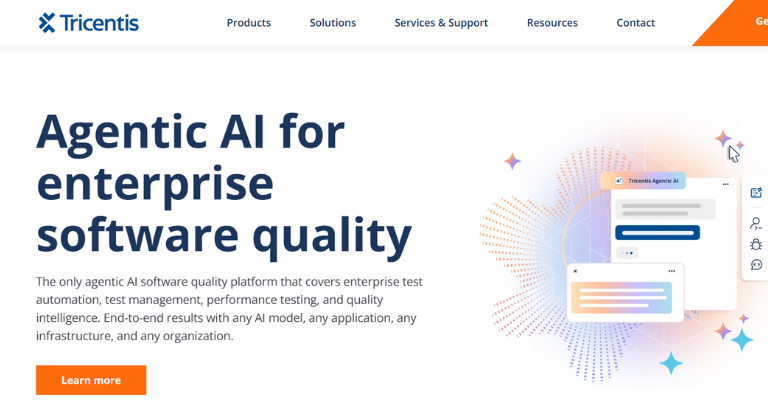
Designed for complex enterprise apps with heavy compliance needs.
AI-driven test automation
Strong integration with SAP, Salesforce, and Oracle
Scales easily for large teams
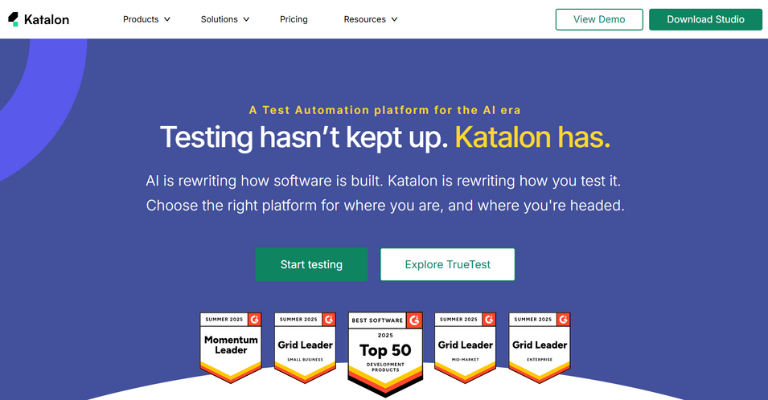
A versatile tool that supports web, mobile, API, and desktop testing in one place.
Offers both codeless and advanced scripting
Great for small and mid-sized QA teams
Free and enterprise plans available
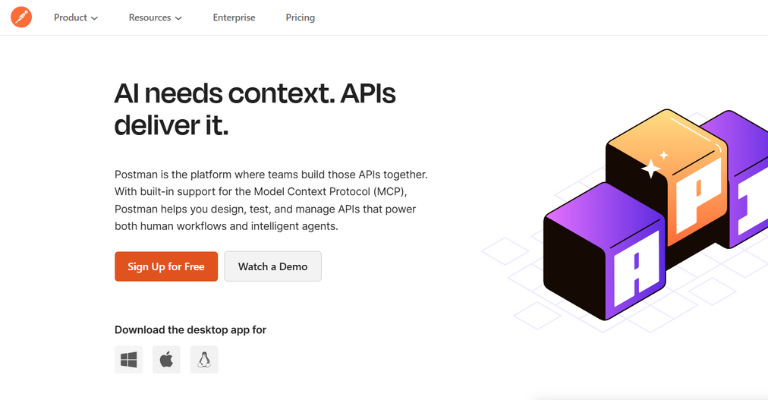
A leading platform for testing and automating APIs, especially useful for microservices and integration-heavy apps.
Create, manage, and automate API test cases
Validate request and response performance
Great for REST, SOAP, and GraphQL APIs
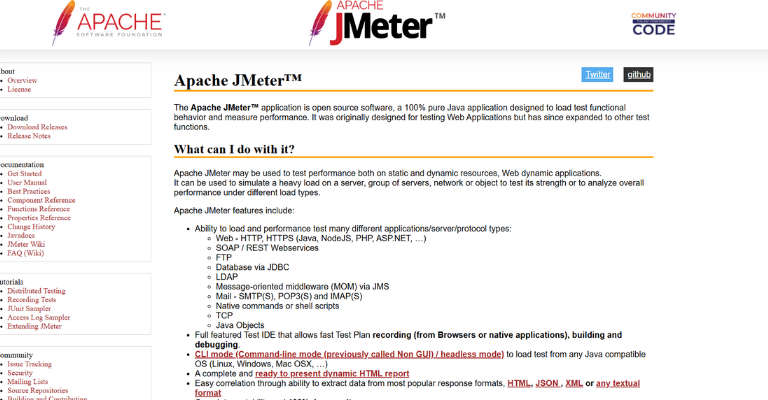
An open-source favorite for stress-testing servers, apps, and APIs under heavy loads.
Simulates thousands of concurrent users
Ideal for gaming, fintech, and e-commerce
Highly extensible with plugins and reporting tools

Perfect if your team uses Behavior-Driven Development (BDD):
Write test cases in plain English
Keeps developers, QA, and stakeholders aligned
Often used alongside Selenium and Appium
When evaluating testing tools, consider:
App Type → Web, mobile, desktop, or hybrid?
Testing Needs → Functional, API, performance, security, or all combined?
Team Expertise → Codeless tools for non-dev teams; script-heavy tools for QA engineers.
Integrations → Must connect with your CI/CD pipeline and bug trackers.
Budget → Open-source tools save costs, but enterprise tools give premium support.
In 2025, software quality is a competitive advantage.
Whether you’re testing an AI-powered mobile app or an enterprise SaaS platform, the right tools save time, reduce bugs, and improve user trust.
If your QA process isn’t scaling, your product isn’t either.
📍 Want to build a testing strategy that actually delivers?